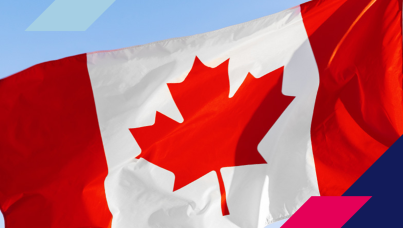Inflation Taking Disproportionate Toll on Canadians Aged 18-34, Impacting Confidence in their Financial Future
Toronto, ON, February 23, 2023 – Canadians aged 18-34 are being disproportionately impacted by inflation and it is impacting confidence in their financial future, according to the 32nd annual RBC Financial Independence poll conducted by Ipsos.
Given today’s economic environment, just 18% of Canadians aged 18-34 are feeling more confident about their financial future than before, a significant drop from the 31% who, last year, said they were feeling more confident about their future emerging from the pandemic. Nearly eight in ten of those aged 18-34 (77%) are concerned (31% very/47% somewhat) about their cashflow right now, significantly higher than the proportions of those aged 35-54 (69%) and 55+ (57%) who say the same.
Thinking about what is preventing them from saving more than they currently do, low incomes (46%) fixed expenses that are too high (35%), and unexpected expenses (27%) are among the primary culprits for young adults.
One half (52%) of those aged 18-34 admit that they were unprepared (15% not at all prepared/37% not very) to deal with the current inflation rates. By comparison, only one in three (33%) Canadians aged 55+ say they were not prepared (9% not at all/23% not very). Reflecting on the reasons for their lack of preparedness, younger Canadians say they just never experienced high inflation before (47%), that they didn’t anticipate how it would affect their ability to pay for basic needs (43%), or their ability to save/invest for the future (32%). One in three (34%) young adults say they were already living paycheque to paycheque.
The challenging economic situation has caused many to pay closer attention to their own finances. Among the areas where younger Canadians are increasing their focus include their day-to-day living expenses (62%, up 14 points from last year), managing their debt (34%, up 7 points), and monitoring the value of their investments (25%, up 5 points).
Many 18-34 year-olds are also taking the opportunity to set financial priorities, as three in ten (30%) indicate that building their investment portfolio is a key financial priority. Among those with this goal, six in ten (62%) intend to put some money aside whenever they can in order to achieve it. Moreover, nearly half (47%) agree (8% strongly/39% somewhat) that they are willing to pay fees if it means a better return on their investments, making them the most likely age cohort to say so.
The data also show that twice as many younger Canadians are prioritizing a comfortable retirement (41%) to an early retirement (21%) when setting goals for investing. Among their top investment goals are building a safety net (45%), building wealth (44%), achieving financial independence (41%) and providing protection for their family (35%).
However, those aged 18-34 do acknowledge that there are some barriers to achieving these goals. Nearly half (44%) admit they are not knowledgeable (11% not at all/34% not very) about investments and a majority (54%) say they have no financial plan, whether it be formal or informal. Further, most (77%) have not consulted with a professional advisor for financial advice within the last year.
Many young adults are off on the right footing. Half (51%) have a TFSA, and 38% have an RRSP, but they do lag older generations in the ownership of both. If they could choose to put money into only one type of plan, either an RRSP or a TFSA, half (50%) would choose the TFSA, while only 25% would opt for the RRSP, and 25% do not know which option they would choose.
About the Study
These are some of the findings of an Ipsos poll conducted between October 15 and 27, 2022, on behalf of RBC. For this survey, a sample of 2,005 Canadians aged 18+ was interviewed. Quotas and weighting were employed to ensure that the sample’s composition reflects that of the Canadian population according to census parameters. The precision of Ipsos online polls is measured using a credibility interval. In this case, the poll is accurate to within ± 2.5 percentage points, 19 times out of 20, had all Canadians aged 18+ been polled. The credibility interval will be wider among subsets of the population. All sample surveys and polls may be subject to other sources of error, including, but not limited to coverage error, and measurement error.
For more information on this news release, please contact:
Sean Simpson
Senior Vice President, Ipsos Public Affairs Canada
+1 416 324 2002
[email protected]
About Ipsos
Ipsos is the world’s third largest market research company, present in 90 markets and employing more than 18,000 people.
Our passionately curious research professionals, analysts and scientists have built unique multi-specialist capabilities that provide true understanding and powerful insights into the actions, opinions and motivations of citizens, consumers, patients, customers or employees. We serve more than 5000 clients across the world with 75 business solutions.
Founded in France in 1975, Ipsos is listed on the Euronext Paris since July 1st, 1999. The company is part of the SBF 120 and the Mid-60 index and is eligible for the Deferred Settlement Service (SRD).
ISIN code FR0000073298, Reuters ISOS.PA, Bloomberg IPS:FP



